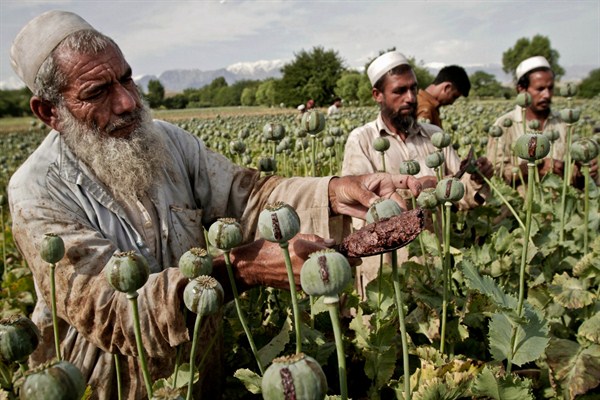Despite many years of effort by the United States and its NATO allies to stem opium production in Afghanistan, this year saw a record crop. Drug production is an integral component of Afghanistan’s complex and seemingly intractable problems. Not only does opium directly support the Taliban, which taxes its manufacture and transportation, it also undercuts broader attempts to stem corruption and expand the legal Afghan economy.
As often happens in today’s interconnected security environment, Afghanistan’s security issues are not contained within its borders. The transportation of Afghan opium funds extremists across Central Asia and threatens governments in that part of the world.
The malignancy of narcotrafficking always spreads. But the connection between political violence and narcotics is not unique to Afghanistan or Central Asia. It is pervasive and global. Wherever there is insurgency and widespread terrorism, chances are that the production or movement of narcotics is helping finance it.

